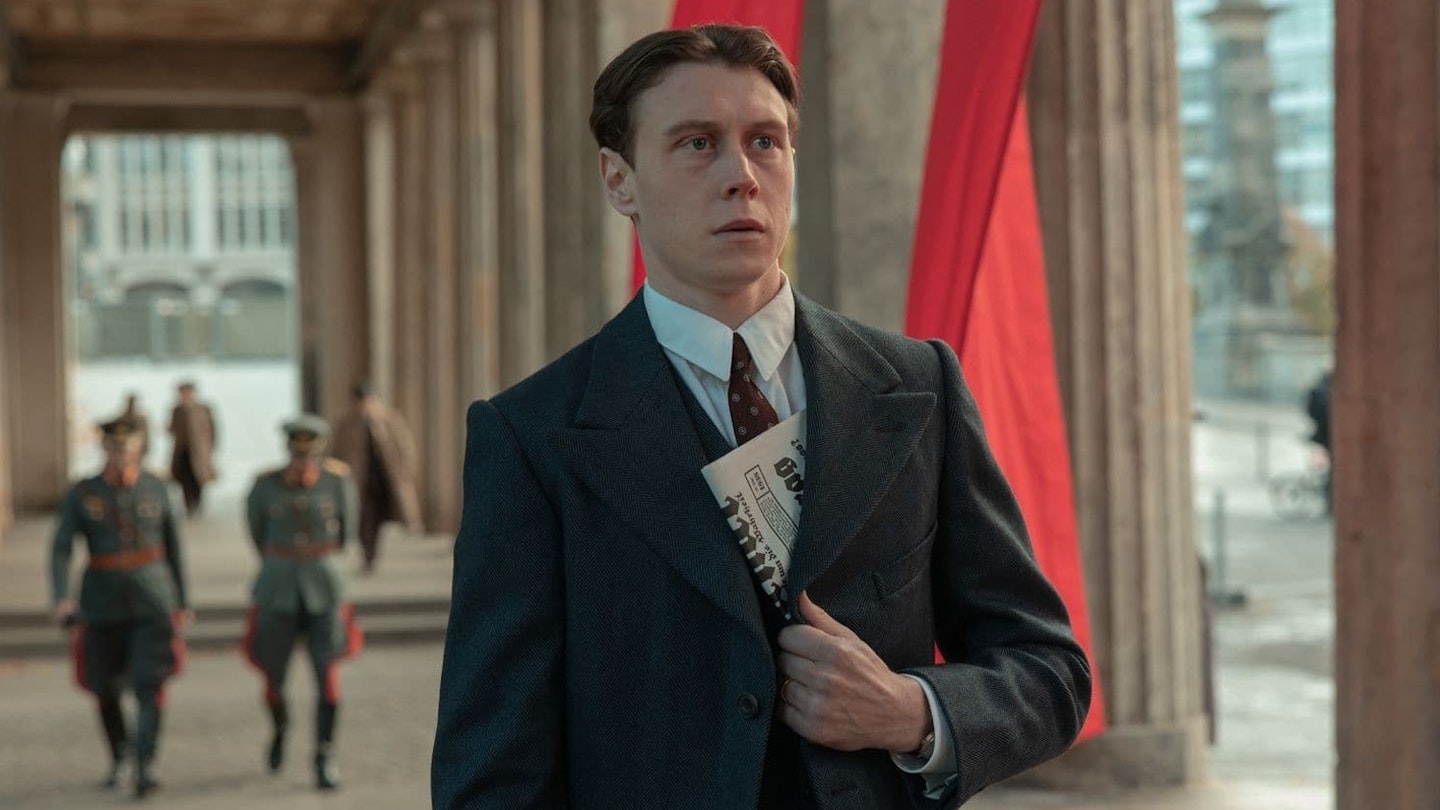A UK-German co-production which avoids that bland Euro-pudding quality, Munich: The Edge Of War is an entertaining adaptation of Robert Harris’ fictionalised account detailing the negotiations over Hitler’s plan to take over Czechoslovakia. Director Christian Schwochow has made episodes of The Crown, and Munich… has the air of a truncated, well-put-together middle-brow mini-series. It never grabs you by the throat, but it makes a valiant attempt to tell a story whose outcome is known even by those who flunked GCSE History.

Adapted by Ben Power (The Hollow Crown) from Harris’ novel Munich, the story starts on lively form at Oxford University as three college pals — Brit Hugh Legat (George MacKay), German Paul von Hartman (Jannis Niewöhner) and Paul’s Jewish German girlfriend Lenya (Liv Lisa Fries, who gets short-changed by the story) — party on an idyllic summer’s night in 1932. Spooling forward six years, Hugh is now working as a private secretary for Neville Chamberlain (Jeremy Irons) and settled into a dour domesticity with wife Pamela (Jessica Brown Findlay), the latter plot-thread given too much weight for little pay-off. Meanwhile, Paul has turned from a fervent nationalist into an undercover resistance agent (little of this transformation is seen on screen which leaves the character feeling slight). During the Munich peace conference over the annexing of the Sudetenland, with Hugh accompanying Chamberlain and Paul working for Hitler (Ulrich Matthes, scary), a plot is hatched to get the latter investigating and acting on intelligence clandestinely served up by the former.
Munich lacks real excitement, but serves up enough espionage to keep it watchable.
Ultimately, Munich: The Edge Of War is a men-talking-in-rooms flick that lacks real excitement (it’s hard to invest in the second-half plot to kill Hitler), but serves up enough espionage and subterfuge shenanigans to keep it watchable. There are interesting character dynamics here, Hugh caught between a sense of honour towards Chamberlain and a desire to expose Hitler’s true plans. Chamberlain, often portrayed as a political cuckold, is afforded more grace here as a man desperate to find peace at any cost, played by Irons with an entertaining imperiousness that belies an undercurrent of melancholy.
MacKay is excellent as a greenhorn civil servant and he is matched by Niewöhner, who finds detail and charisma in his double agent — the pair’s scenes together are the best in the picture. Schwochow’s direction is the kind of filmmaking that is doomed to be described as ‘handsomely mounted’, very tasteful and nimble, but Munich… lacks the emotional punch to make it truly memorable. In that early Oxford party, Paul describes the British as “distant from feeling”. It might also be a good tagline for the movie.
